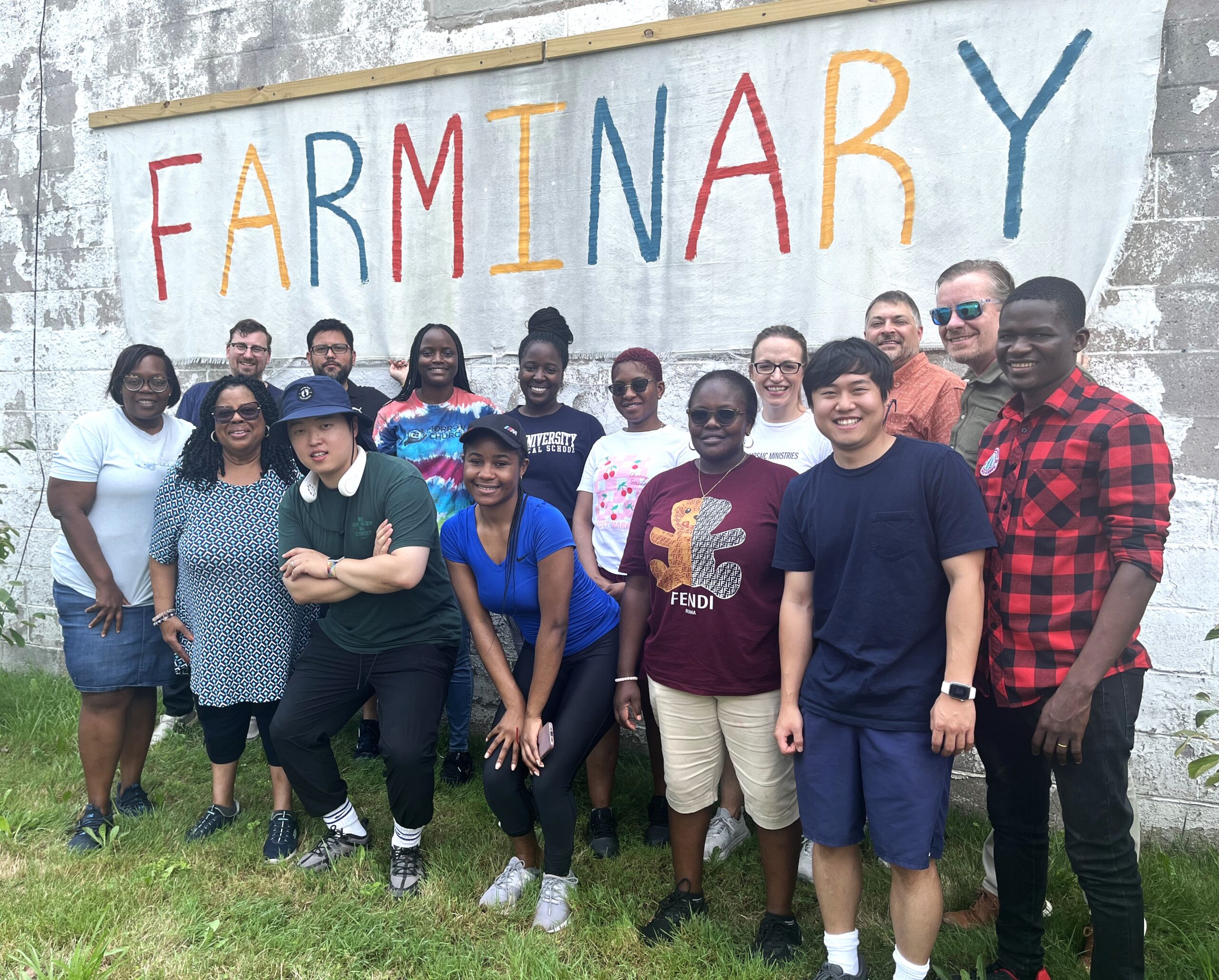
On July 25, a group of pastors gathered at Princeton Theological Seminary’s Farminary, as the final activity of their three-date retreat. At first glance, one might wonder, what does farming have to do with pastoral ministry? A lot, as it turns out.
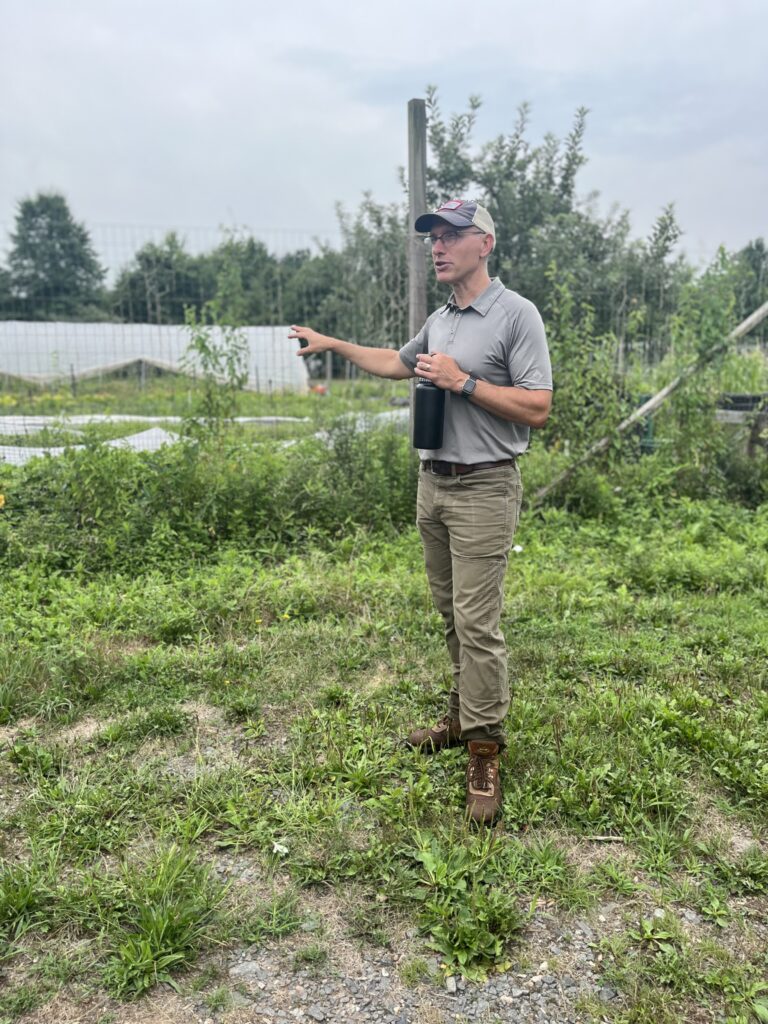
Dr. Nate Stucky led the pastors on a tour of the farm and shared the lessons he’d gleaned over the last 9 years of bringing farming and theology into conversation with each other. As the pastors in the Mosaic program pulled weeds, tilled the earth, and spread compost, they learned leadership lessons that would strengthen their ministry.
“A good farmer knows how to pay attention to seasons, how to tend life, preserve through failure. They understand limits and how to ask for help and experience the interconnectedness of life and death. Those skills are pastoral, related to the pasture, and also pastoral, related to the parish. Good pastors and good leaders require those same skills.”
A few of the pastors in the Mosaic program shared their call stories as they worked and toured the farm. This group of diverse young leaders from across the world had a lot to say about how they had experienced God in their life and how they saw the Holy Spirit moving in The United Methodist Church.
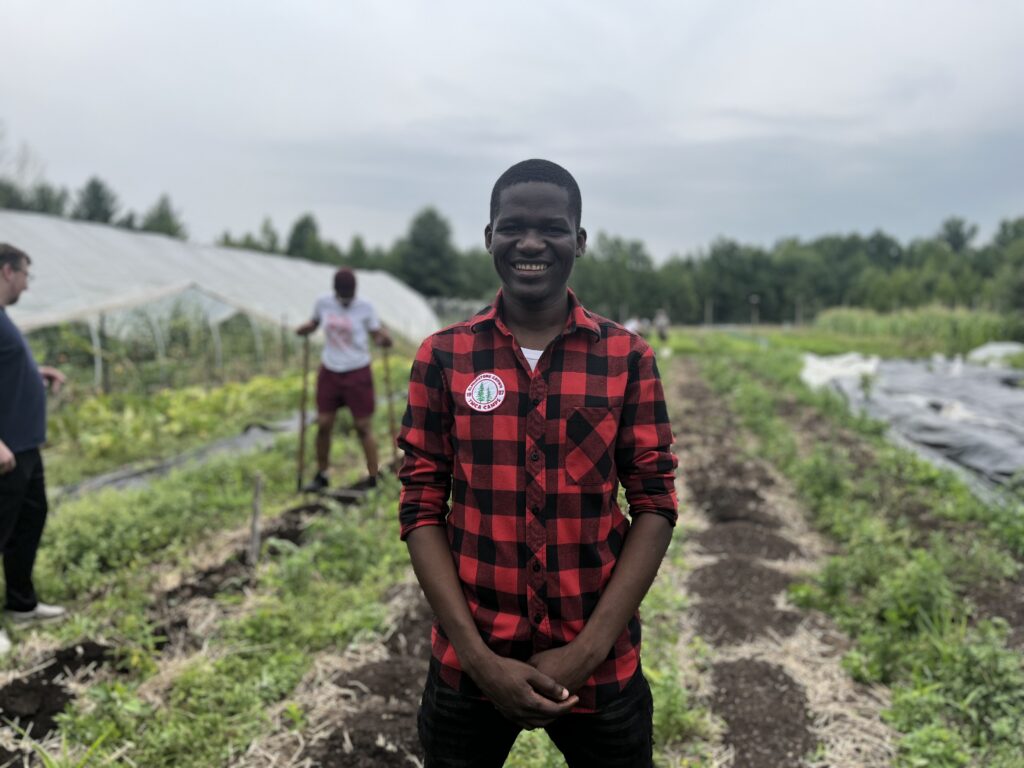
Josiah Mono John, a self-described pastor’s kid from northern Nigeria, told the story of how his call to ministry came on slowly. When he was growing up, his friends would jokingly call him “pastor!” and he said, “deep within, I saw myself in that path.” In high school he earned an A-level in accounting. While he was serving in youth ministry, he experienced a sense of freedom and he realized he didn’t want to be an accountant, he wanted to go and study theology at Africa University.
When asked where he sees the Holy Spirit in The United Methodist Church he said “In the United Methodist Church it’s a dying season, but I am seeing how God is using this season to raise our consciousness to valuing each other. What dies within us is the hatred we have for one another. That genuine love is what God is helping us to bring forth… For me being part of the mosaic ministry, having the opportunity to serve in a diverse congregation is helping me to participate in what God is doing in the life of the church in this moment by showing genuine concern and love to transform our communities.”
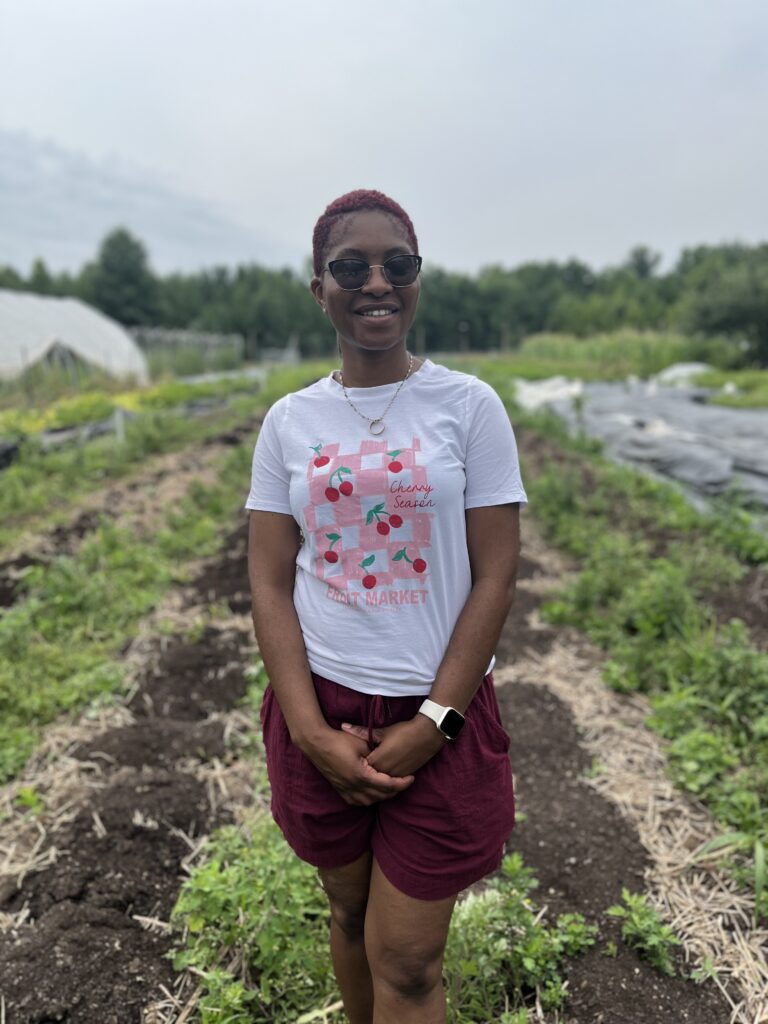
Chantel Makarawa, serving New Dover UMC in Edison, said it was the faith of the women in her family, particularly her mother and maternal grandmother, that inspired her journey to become a pastor. “Growing up, praying was really important to us. My grandmother would wake me at 4am to pray. She’s a prayer warrior.”
Faith rooted itself deeply in Chantel, and from an early age she sensed a call to ministry, but she faced obstacles, including a stammering disability. “I didn’t believe in myself enough to speak out.” She helped out in other areas of the church, such as the choir and pastoral counseling and visitation. When she attended Africa University, to study psychology, she found herself envying the person up front “I wish that I could preach and transform lives.”
Fast forward, and Makarawa found herself in the United States to study at Social Justice and Advocacy at Drew University, and she stepped through the doors of Morrow Memorial UMC. The very first day she came to worship, Rev. Janice Sutton Lynn asked her to read the scripture. That moment touched Makarawa deeply. “I felt special. I felt good about it. I felt good about leading and not being limited.”
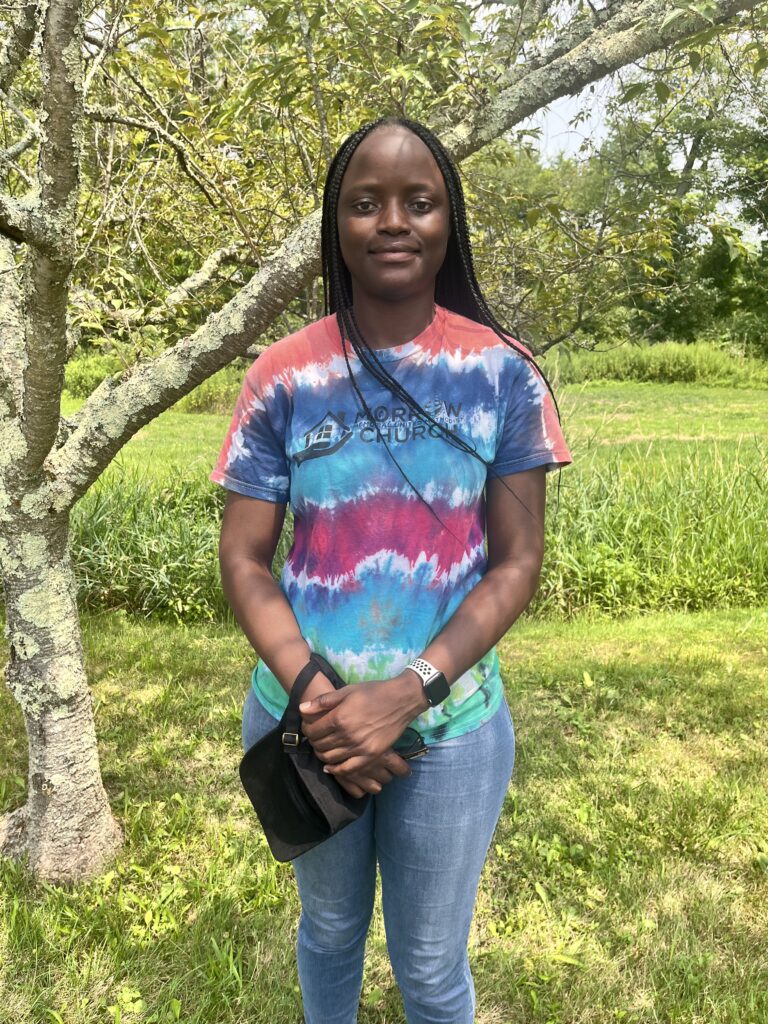
Doreen Mihlanda, from Zimbabwe, shared that her calling was rooted in youth ministry. She led the youth ministry in her community before going to college. While she was away studying marketing, she continued to come back home to do youth ministry. After spending some time in a career in marketing, she applied to Drew University to get a Master of Social Justice and Advocacy, hoping to find a way to bless children.
“God had other plans.” Doreen joked. “It’s a story that is still being written. I’m allowing God to write it for me.”
When asked what she appreciated about Mosaic, Doreen responded “One thing that I like about Mosaic is it helps you see clearly where you are going and what you are getting into.”
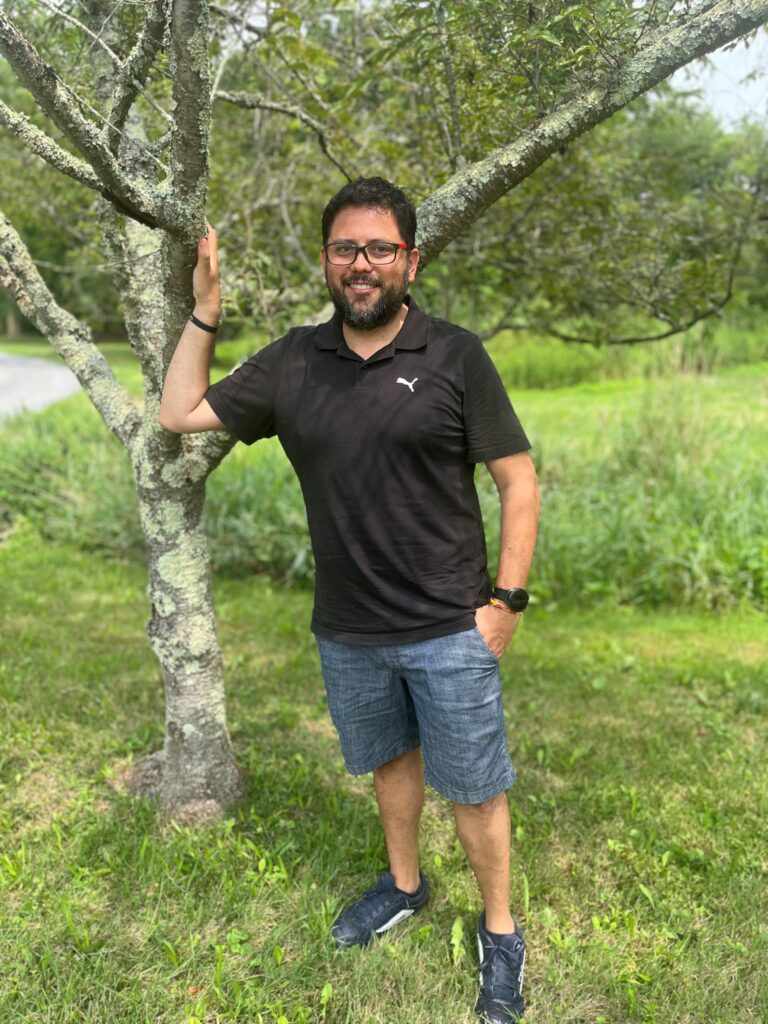
While others traced their call stories from the beginning, David Gaitan, pastor of Trinity UMC in Ewing, spoke about experiencing God’s call at the recent 2020/2024 General Conference, he said, “I was able to attend because of Mosaic. I really felt God calling me there to serve the church. We are closing in on an exciting moment in history… The church approved new inclusion for others and removed the harmful language. It brought hope and drew a line that we should go on to pursue… We need to extend beyond us. Bringing relevant and pertinent answers to a world that is asking a lot of questions now.”
After a morning of work and learning, the pastors gathered around the table to share their reflections about the day. One shared “the transition [into ministry] has brought with it lots of weeds, fears, and doubt.”
Another noticed that as they moved through the day “there’s a place for everything. There’s room for everyone to work.” Someone else said, “At the compost pile I learned that death does not have the final say.” This reflection led Josiah Mono John to ask a profound question “What needs to die in me that can be used as a fuel for others?
As the group sat down with Nate Stucky to reflect on what struck them, the farm provided one last leadership lesson. Dr. Stucky told the group, “An underappreciated skill in leadership is knowing when to let go, and when to walk away. With planting, you have to let the sunshine, and the soil, and the seeds do what only they can do. You till the soil, you plant the seed, you water, and then you walk away. So often we put ourselves in God’s position, and think, if I don’t do it, it’s not gonna happen. And by doing that, we kill the very things we were earnestly hoping to plant and grow.”
These new leaders learned a lot from their day at the Farminary, but that wasn’t the only space of learning. The three-day retreat was a kind of pastoral ministry boot camp. Leaders from across the conference made presentations in their areas of expertise, including sermon series planning, church administration, and pastoral care to give incoming leaders a strong foundation as they begin this new season of ministry.
Mosaic Ministries is part of EPA & GNJ’s mission to recruit and train transformational leaders. Mosaic works with developing leaders who are in and coming out of seminary. Cultivate, is an internship program that works with young leaders who are discerning a call to leadership in the local church. If you, or someone you know is exploring a call to leadership in the local church or looking to serve a United Methodist church, you can learn more about Mosaic Ministries here.
